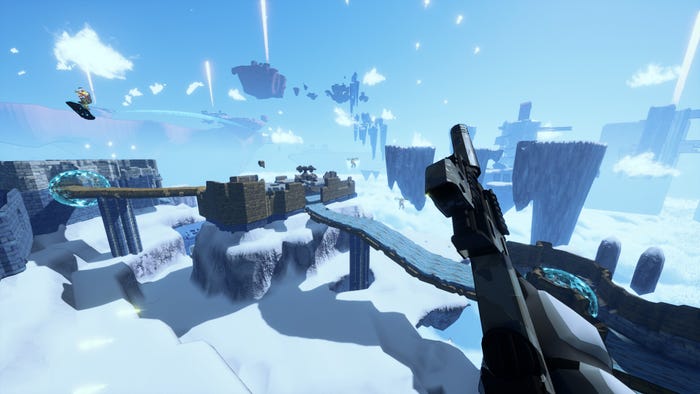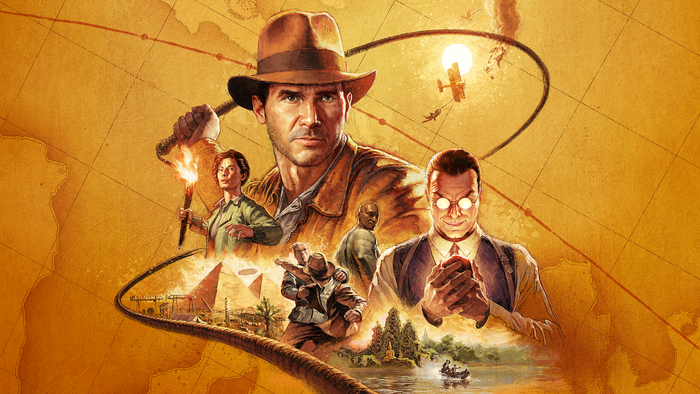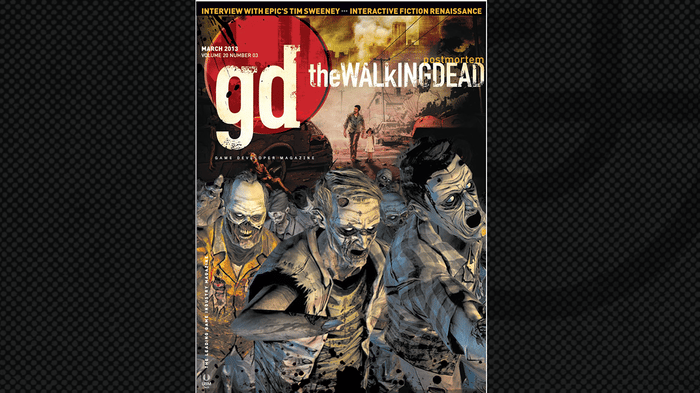Q&A: 1C's Baryshnikov On Growing Russia's 'Tiny' Console Market
1C is Russia's largest publisher, thriving in a region where PC dominates. This year, though, it's begun migrating to consoles for the first time, and sales director Nikolay Baryshnikov talks about the move, plus 1C's initiatives to combat piracy -- which
September 8, 2008

Author: by Brandon Sheffield, Staff
Russia's largest publisher, 1C (Space Rangers, IL-2 Sturmovik) claims over 100 PC titles under its belt, thriving in a market where consumer taste and high piracy combine to make PC the dominant platform in Russia. Earlier this year, though, 1C announced it's begun a move into console development for the first time with Captain Blood, releasing on PC and Xbox 360. Its previously PC-only combat flight simulator IL-2: Sturmovik: Birds of Prey is also making a bold move, slated for Xbox 360, PlayStation 3, PSP, and Nintendo DS. Is this a sign that console penetration in the Russian regions is increasing, or is 1C attempting to pave the way? We talked to 1C sales director Nikolay Baryshnikov about the company's new moves, including initiatives to combat software piracy in Russia and opening its own retail store. As 1C gets into Xbox 360 development, are you seeing increased viability for consoles in the Russian market right now? Nikolay Baryshnikov: Well, the market is still quite tiny, so we have a predominantly PC market, with maybe 90 to 95 percent PC, and the rest is only consoles. So for the top games, we're talking maybe five to ten thousand units. However, we really look into other markets, so for us, console development is quite important, because in America -- and of course in some of the European countries and the UK -- console games are becoming more and more popular. So it's really the extension of our portfolio, so we cannot just stick to the PC just because our domestic market is so PC-heavy. Do you feel that the console market is going to grow in the Russian territories, so that this is something of a pre-emptive strike for you? NB: Actually, that is the fastest-growing market; the PC is growing maybe 30 to 40 percent a year, but console is growing faster than 100 percent per year. Of course, when consoles will be noticeable enough to take a bigger part of the total market, that's another question. But it's definitely growing, and of course we would be happy to see a big market locally, because that makes it easier for us to put the investment in game development. Is it possible to recoup your costs in the Russian market alone, or do you have to look to America and European markets? NB: It really depends on the project. If we're talking really big, triple-A, world-class title, then obviously not. Maybe there are some exceptions, but I would say, generally, we would not expect 100 percent recovery of cost just from the local market. So absolutely we are looking for some good results overseas. Are you also looking at any smaller scale projects, such as Xbox Live Arcade downloadable games? NB: Not at the moment. And, actually, funny enough, Xbox Live is not even up and running in Russia. We are slowly getting to multi-platform development carefully, because this is as yet reasonably unknown ground for us. We do have a few games in development -- on PC we've produced probably around a hundred games, as of today -- so we shall try the shallow waters, and see how successful our titles are, and try to increase and move on to other platforms. Alien Shooter seemed like a very natural fit for Xbox Live Arcade, though, with a lot of international appeal. NB: Yeah, but that's not the strategy at the moment. So at 1C, we decided to risk our biggest IP that we own now... so if we decide to make an experiment, we try to really put some effort into it. So you're combating large issues with piracy in the region, and as the biggest publisher in Russia, it makes sense that you'd end up dealing with it -- and seeing the greatest impact from it. What's happening in that area right now? NB: Absolutely. We are fighting against piracy, and we are fighting against both retail piracy and online piracy, because for us -- what you don't have here in the States -- piracy is really industrialized, so pirate games are being sold at retail. Outside of Moscow you can see big shops of pirated and non-pirated games. There is a big hunt for the pirate retailers, and we try to convert them to retailers that are not selling pirate stuff. Then we are pursuing some of the guys putting out games online. Actually, last year that was a big achievement for us: We managed to nick the guy who run a torrent website, and everyone said it's definitely impossible, those guys are untraceable -- and actually no, we've proved them wrong. There is a huge anti-piracy association, and we are leading the association with other companies like Microsoft in Russia. So that's a big part of our job. Because you can make nice games, you can try to sell and market them, but when you're hampered by piracy, it doesn't help. You've just opened some retail stores of your own. How is it possible to compete with legitimate software against pirate software, when obviously the prices are very different? NB: Well, you really have to show to people that if you go into a nice store that is well lit, that has good products, and where there is always a person who can help you by explaining what this game's about, the inventory is much nicer -- people don't mind paying a bit more money for much nicer service. So that's the key. Are there also economic factors that have to do with the piracy, like on the part of the consumers? NB: Well, Russian prices are still much lower than America and Europe, so we are talking about, let's say, maybe twenty bucks, retail price, for a triple-A title. That's also one of the key issues. So we're trying to be a bit cheaper, and offer it to our customers like a reasonable value -- what actually they see as a reasonable value. Of course I would love to sell games like three hundred bucks apiece, but, you know, the specific market, and gamers have X amount of money in their pockets, and we really have to understand what is an OK purchase for them. Will you be selling used games there, as well, or new games only? NB: No, it's new games only. I see. And if you own retail, do 1C games get better placement in the store? NB: Again, this is a new division for us, plus we need to understand that we deal with about ten thousand retailers, and our retail chain is only one of those ten thousand, so in the best case we're talking 3 or 4 percent -- our retail chain being 3 or 4 percent of the total retail market. Obviously in our own chain we can get some better placement because of the natural synergy of the company, our own company, but the key is that this retail unit is being run as an independent retail unit. They have the choice [about which games to promote when], because they have to be profitable. Which type of game format do you think has the greatest future growth potential among Russian consumers? Will it be hardcore, casual, online? NB: That's a very tough question. On one hand... we're slightly concerned that casual games are growing and growing and [taking audience away from] let's say "normal gaming," but then there's a different point of view that says that people are actually playing casual games and then they will be jumping into [core market] gaming. Which trend would be more powerful? I can't say. But in general, I am quite happy that more and more people are starting to play games this way or another way, and gaming itself is definitely becoming the number one entertainment industry. So we are bigger than music for many years, and I think big releases like Halo and GTA show that video games and entertainment are changing.
You May Also Like







